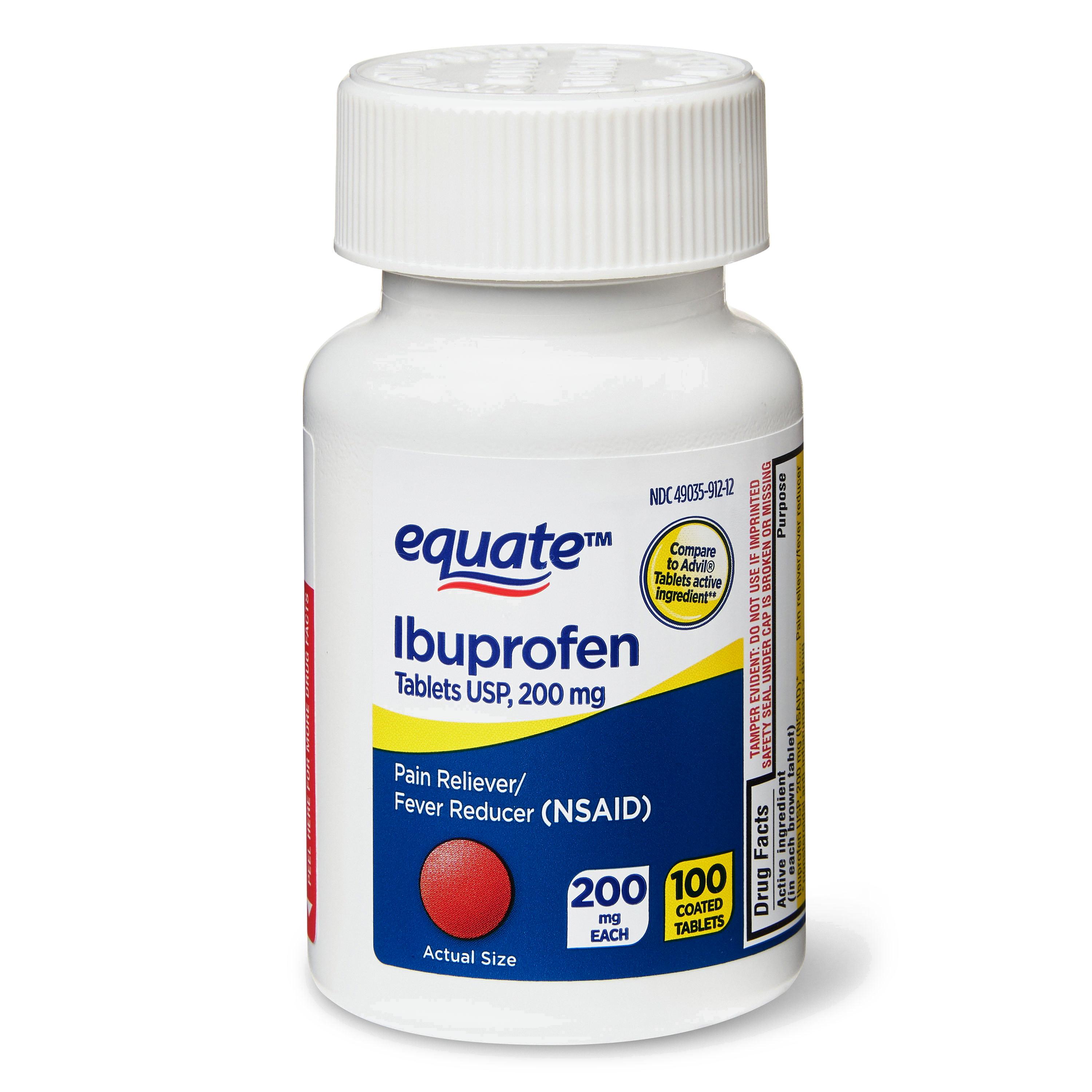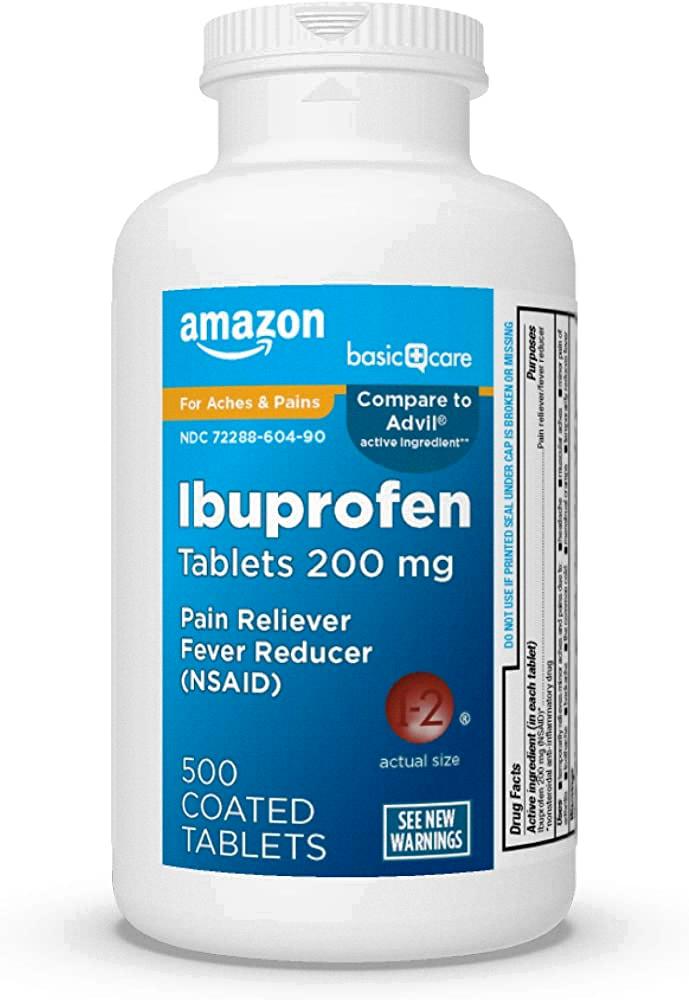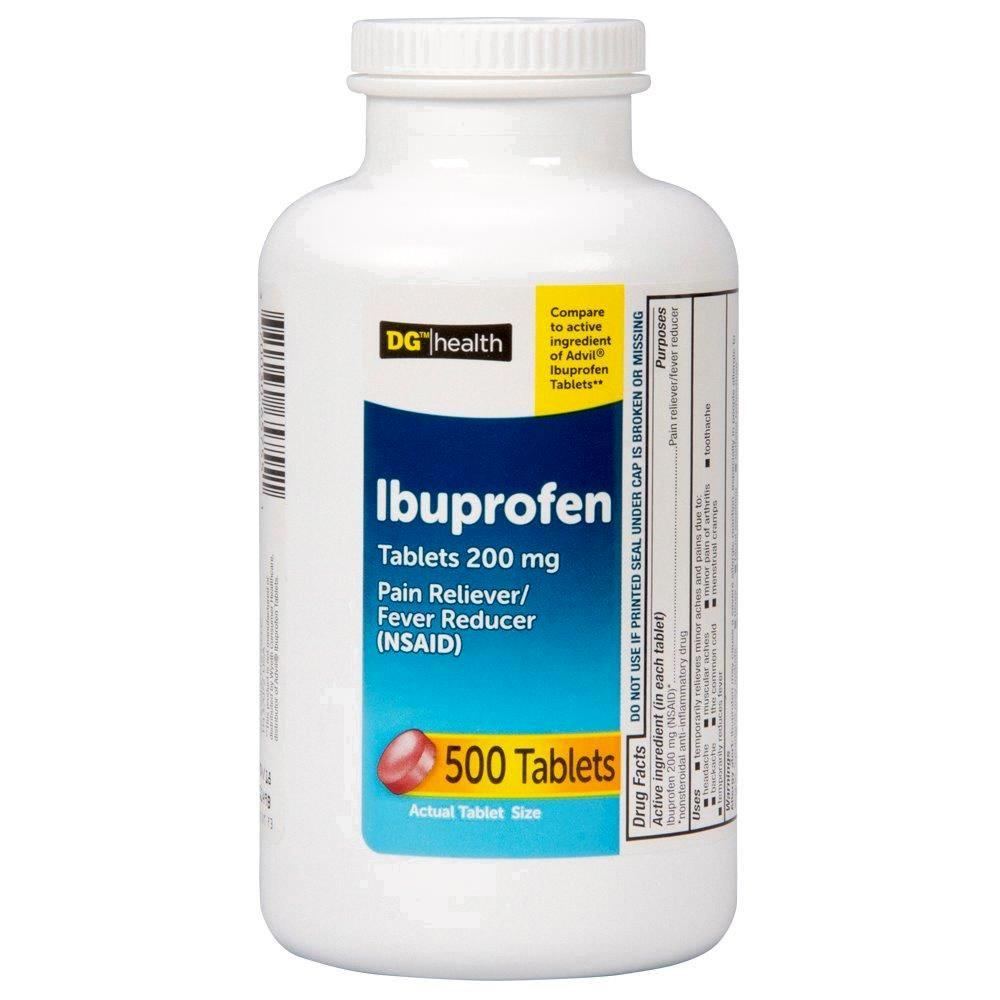Ibuprofen is a commonly used medication for pain relief and reducing inflammation. Many people wonder if ibuprofen has blood-thinning properties, and if it can be used to prevent blood clots or reduce the risk of heart attacks and strokes. In this blog post, we will explore the answer to the question, “Does ibuprofen thin your blood?”
First, it is important to understand what is meant by “blood thinning.” Blood thinning medications, also known as anticoagulants, reduce the body’s ability to form blood clots. Blood clots can be dangerous if they form in blood vessels and block the flow of blood to vital organs, such as the brain or heart. Anticoagulants are often used to prevent blood clots in people at high risk, such as those with atrial fibrillation or a history of blood clots.
Ibuprofen is not a true blood thinner in the sense that it does not directly reduce the body’s ability to form blood clots. Instead, ibuprofen is a nonsteroidal anti-inflammatory drug (NSAID) that works by reducing inflammation and pain. However, NSAIDs like ibuprofen can indirectly affect blood clotting by inhibiting the activity of platelets, whih are small blood cells that help the blood to clot.
Platelets are important for forming blood clots when there is an injury, such as a cut or bruise. However, in some cases, platelets can become overactive and form clots in blood vessels, leading to conditions such as heart attacks and strokes. NSAIDs like ibuprofen can help to reduce the risk of these conditions by inhibiting platelet activity and reducing the risk of blood clots.
It is important to note that ibuprofen’s effects on platelets are not as strong as those of true blood-thinning medications like aspirin or warfarin. Ibuprofen is not typically used as a primary treatment for preventing blood clots or reducing the risk of heart attacks or strokes. Instead, it is commonly used for pain relief and reducing inflammation in conditions such as arthritis, menstrual cramps, and headaches.
While ibuprofen may have some effects on platelet activity and blood clotting, it is not considered a true blood thinner. If you have a medical condition that requires blood-thinning medication, such as atrial fibrillation or a history of blood clots, it is important to discuss your options with your healthcare provider. They can help you determine the best treatment plan for your individual needs.
While ibuprofen may have some effects on platelet activity and blood clotting, it is not a true blood thinner. It is commonly used for pain relief and reducing inflammation, rather than for preventing blood clots or reducing the risk of heart attacks and strokes. If you have questions about your medication or medical condition, be sure to speak with your healthcare provider.
Comparing the Effects of Aspirin and Ibuprofen on Blood Thinning
Aspirin is known to thin blood more than ibuprofen. Aspirin works by inhibiting the production of thromboxane, wich is a chemical that promotes blood clotting. By doing so, it reduces the ability of blood to clot and can help prevent heart attacks and strokes. On the other hand, ibuprofen is a non-steroidal anti-inflammatory drug (NSAID) that works by blocking the action of an enzyme called cyclooxygenase (COX). This enzyme is responsible for producing prostaglandins, which are substances that cause inflammation and pain. While ibuprofen can also have some effect on blood clotting, it is generally less potent than aspirin. It is important to note that both aspirin and ibuprofen can have potential side effects on the stomach and kidneys, and it is always recommended to consult with a healthcare professional before taking any medication.

Source: walmart.com
Does Ibuprofen Affect Blood Thickness?
Ibuprofen, which is commonly sold under the brand name Advil, is considered a blood thinner. It belongs to a class of drugs known as nonsteroidal anti-inflammatory drugs (NSAIDs) that work by inhibiting the production of certain enzymes in the body that cause inflammation and pain. However, in addition to reducing pain and inflammation, ibuprofen also slows down the blood clotting process. This means that if you have a cut or injury, it may take longer for your blood to clot and stop bleeding when taking ibuprofen. It’s important to note that while ibuprofen does affect blood clotting, it doesn’t actually “thin” your blood in the same way that prescription blood thinners do. Nonetheless, if you are taking ibuprofen or any other medication that affects blood clotting, it’s important to speak with your healthcare provider to ensure that you are taking the approriate dose and that it is safe for you to use.
The Effects of Tylenol and Ibuprofen on Blood Thickness
Tylenol, also known as acetaminophen, is not a blood thinner. It works to reduce pain and fever by blocking the production of certain chemicals in the body that cause inflammation. On the other hand, ibuprofen belongs to a class of drugs known as nonsteroidal anti-inflammatory drugs (NSAIDs) that work by inhibiting the production of prostaglandins, which are responsible for causing pain, inflammation, and fever. While ibuprofen can have some mild blood-thinning effects, it is not considered a significant blood thinner. However, it is important to note that both Tylenol and ibuprofen can have other potential side effects, and it is important to alays follow the recommended dosage and consult with a healthcare provider before taking any medication.
The Duration of Blood Thinning Effects After Taking Ibuprofen
Ibuprofen is a non-steroidal anti-inflammatory drug (NSAID) that is commonly used to relieve pain, reduce fever, and decrease inflammation. It works by inhibiting the production of prostaglandins, which are chemicals that promote inflammation and blood clotting. As a result, ibuprofen can have a blood-thinning effect, which means that it can make it more difficult for blood to clot.
The duration of blood thinning after ibuprofen use can vary depending on several factors, including the dose of ibuprofen, the frequency of use, and individual variations in metabolism and response to the drug. However, studies have shown that platelet function, which is a measure of blood clotting ability, can return to normal within 24 hours after cessation of regular ibuprofen use in healthy individuals.
It is important to note that the blood-thinning effect of ibuprofen is generally mild and short-lived, and is unlikely to cause significant bleeding or other complications in healthy individuals. However, people who are taking blood-thinning medications or who have a history of bleeding disorders should consult their healthcare provider before taking ibuprofen or any other NSAID, as it can increase the risk of bleeding. Additionally, it is always recommended to follow the instructions on the label and to talk to a healthcare provider if you have any questions or concerns abut the use of ibuprofen or any other medication.
Pain Relievers That Will Not Thin the Blood
If you are looking for a pain reliever that does not thin your blood, then you should consider taking acetaminophen, which is commonly sold under the brand name Tylenol. Unlike other pain relievers such as aspirin, ibuprofen, and naproxen, acetaminophen does not have any blood-thinning properties. This makes it a safer option for people who need to avoid blood-thinning medications due to vrious reasons such as upcoming surgery, bleeding disorders, or taking blood thinners for other medical conditions. However, it is essential to note that acetaminophen can still have side effects, such as liver damage, when taken in high doses or for extended periods. Therefore, it is crucial to follow the recommended dosage and talk to your doctor if you have any concerns.

Source: nbcnews.com
The Effects of Pain Relievers on Blood Thinning
Aspirin is the pain reliever that makes your blood thinner. It contains acetylsalicylic acid, which inhibits the function of platelets in the blood, leading to reduced clotting ability. This property of aspirin makes it effective in preventing blood clots that can lead to heart attacks and strokes. However, it is important to note that not all pain relievers have the same effect on blood clotting. Acetaminophen, commonly kown as Tylenol, is not classified as a blood thinner-type of drug and does not affect the blood’s clotting ability. Therefore, if you are taking blood thinners, it is important to consult with your healthcare provider before taking any pain relievers to avoid potential interactions.
Does Ibuprofen Increase the Risk of Bleeding?
Ibuprofen has been shown to increase the risk of upper gastrointestinal tract bleeding compared to non-use of the drug. This information is based on meta-analyses of both randomized and observational data. The same meta-analyses also found that other nonsteroidal anti-inflammatory drugs (NSAIDs) such as naproxen, celecoxib, and diclofenac are also associated with an increased risk of upper gastrointestinal bleeding. It is important to note that while ibuprofen and other NSAIDs are effective at reducing pain and inflammation, they should be used with caution and under the guidance of a healthcare professional. Individuals who are at an increased risk for gastrointestinal bleeding, such as thoe with a history of ulcers or bleeding disorders, may need to avoid these medications or use them in lower doses.
The Effects of Anti-Inflammatories on Blood Thickness
Anti-inflammatories, specifically aspirin and nonaspirin nonsteroidal anti-inflammatory drugs (NSAIDs), can thin the blood. This is because these drugs inhibit platelet cyclooxygenase, which is responsible for the formation of thromboxane A2. Thromboxane A2 is a chemical that promotes platelet aggregation and blood clotting. Therefore, when platelet cyclooxygenase is inhibited by aspirin or NSAIDs, thromboxane A2 production is reduced, which impairs thromboxane-dependent platelet aggregation and prolongs bleeding time. This can result in a systemic bleeding tendency, making the blood thinner and more prone to bleeding. It is important to note that whie these drugs can be beneficial for their anti-inflammatory properties, they should be used with caution and under the guidance of a healthcare provider, especially for individuals with a history of bleeding disorders or those taking blood-thinning medications.
Does Ibuprofen Increase the Risk of Blood Clots?
Ibuprofen is a type of non-steroidal anti-inflammatory drug (NSAID) that is commonly used to relieve pain and reduce inflammation. While it is generally considered safe for short-term use, there is some evidence to suggest that ibuprofen and other NSAIDs may increase the risk of blood clots.
Blood clots occur when blood cells stick together and form a clump, which can block blood flow and cause serious health problems. Some studies have found that NSAIDs can affect the way blood cells function, making them more likely to clump together and form clots.
However, the risk of blood clots with NSAID use is generally considered to be low, and the benefits of using thse medications for pain relief often outweigh the risks. It is important to use NSAIDs only as directed, and to talk to your doctor if you have any concerns about their safety or potential side effects. If you have a history of blood clots or are at high risk for blood clots, your doctor may recommend alternative pain relief options.

Source: amazon.com
Top 10 Blood Thinners
There are sevral types of blood thinners that are commonly prescribed by doctors to prevent blood clots and reduce the risk of stroke and heart attack. Here are the top 10 blood thinners:
1. Warfarin (Coumadin): This is a type of oral anticoagulant that has been used for over 60 years. It works by inhibiting the production of clotting factors in the liver.
2. Heparin: This is an injectable anticoagulant that is often used in hospitals to prevent blood clots. It works by binding to the antithrombin protein in the blood, which in turn inhibits the activity of clotting factors.
3. Enoxaparin (Lovenox): This is a low molecular weight heparin that is also given by injection. It has a longer half-life than regular heparin, which means it can be given less frequently.
4. Dabigatran (Pradaxa): This is a newer type of oral anticoagulant that works by inhibiting thrombin, a clotting factor. It has been shown to be just as effective as warfarin at preventing stroke and embolism, but with fewer side effects.
5. Rivaroxaban (Xarelto): This is another newer type of oral anticoagulant that works by inhibiting factor Xa, another clotting factor. It has a faster onset of action and a shorter half-life than warfarin.
6. Apixaban (Eliquis): This is yet another newer type of oral anticoagulant that works by inhibiting factor Xa. It has been shown to have a lower risk of bleeding compared to warfarin.
7. Clopidogrel (Plavix): This is an antiplatelet medication that works by inhibiting the activation of platelets, which are involved in clotting. It is often used in combination with aspirin to prevent heart attacks and strokes.
8. Ticagrelor (Brilinta): This is another antiplatelet medication that works by inhibiting the P2Y12 receptor on platelets. It has been shown to be more effective than clopidogrel in reducing the risk of cardiovascular events.
9. Prasugrel (Effient): This is a third antiplatelet medication that works by inhibiting the P2Y12 receptor. It is often used in patients with acute coronary syndrome who are undergoing percutaneous coronary intervention (PCI).
10. Edoxaban (Savaysa): This is a newer type of oral anticoagulant that works by inhibiting factor Xa. It has been shown to be just as effective as warfarin at preventing stroke and embolism, but with fewer bleeding events.
Does Ibuprofen Act as a Blood Thinner?
800 mg ibuprofen is not a blood thinner. Ibuprofen belongs to a class of medications called NSAIDs (nonsteroidal anti-inflammatory drugs) that are used to reduce pain, inflammation, and fever. While NSAIDs can affect the blood’s ability to clot, they are not classified as blood thinners. Blood thinners are a different type of medication that are used to prevent blood clots from forming or to reduce existing blood clots. It is important to consult with a healthcare provider before taking any medication, including ibuprofen, to ensure it is safe and appropriate for your individual needs.
Risk of Internal Bleeding from Ibuprofen Use
Internal bleeding is a potential side effect of taking too much ibuprofen. The approved over-the-counter daily dose of ibuprofen is 1,200 mg. However, taking higher doses, such as 2,400 mg per day, may increase the risk of gastrointestinal (GI) bleeding, which can lead to internal bleeding. It is important to follow the recommended dosage instructions on the label of the ibuprofen product and to never exceed the recommended daily dose without consulting a healthcare provider. Additionally, if you experience symptoms such as stomach pain, black or bloody stools, or vomiting blood, seek medical attention immediately as thee may be signs of internal bleeding.
Comparing the Strength of Ibuprofen and Aspirin
When it comes to pain relief, both aspirin and ibuprofen are effective medications that belong to the same class of drugs known as nonsteroidal anti-inflammatory drugs (NSAIDs). Both of these medications work by blocking the production of prostaglandins, which are chemicals in the body that cause inflammation and pain. However, when it comes to strength, ibuprofen is generally considered to be stronger than aspirin.
Ibuprofen is known to be more effective at reducing inflammation and relieving pain, and it is oftn recommended for more severe or persistent pain. Aspirin, on the other hand, is typically used for milder pain relief and is often recommended for its cardiovascular benefits. Additionally, aspirin has a much longer half-life than ibuprofen, which means it stays in the body longer and may have a more prolonged effect.
It’s important to note that both medications come with potential risks and side effects, so it’s always important to talk to your doctor before taking any new medication, especially if you have a history of allergies, stomach ulcers, or other health conditions. Ultimately, the choice between ibuprofen and aspirin will depend on your individual health needs and the severity of your pain.

Source: drsilvasultrawellness.com
Conclusion
Ibuprofen is a commonly used medication for the relief of pain, inflammation and fever. While it is not considered a blood thinner, it does have an effect on blood clotting time by slowing it down. This means that if you have an injury or cut, it may take longer for your blood to clot. However, studies have shown that platelet function seems to return to normal wihin 24 hours after cessation of regular ibuprofen use in healthy individuals. It is important to note that ibuprofen should not be used as a substitute for aspirin when it comes to reducing the risk of heart attack or stroke or preventing blood clotting. As with any medication, it is important to follow the recommended dosage and consult with a healthcare provider if you have any concerns or questions.
